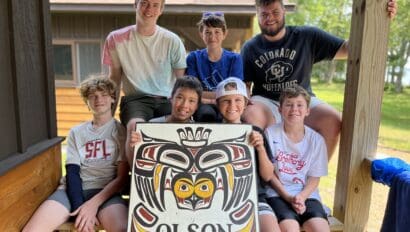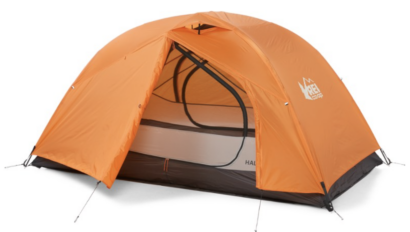Chapter 2 of Audrey Monke’s book Happy Campers is called “Catch Them Doing Something Right.” It explores the ease and effectiveness of positive parenting practices. She provides a number of simple ways to better mentor young people. In our culture, discipline is often misunderstood and misused. The word discipline, Monke explains, comes from the word disciple, or “a leader or teacher [who] would provide mentorship.” However, the easiest—but most ineffectual—form of discipline often comes to the surface in stressful situations. This negative discipline looks and sounds like nagging, arguing and blame. Monke continues throughout her chapter “Catch Them Doing Something Right” to show us how camp leaders, child psychologists and parents alike have found immense success in positive discipline and mentorship.
 At Camp Chippewa, staff members receive training to better connect with the campers, support them, and reinforce positive behaviors. We are lucky to have an experienced group of people leading this training, including our camp directors and senior staff with extensive experience as parents and educators, as well as Dr. Tina Payne Bryson, a child psychologist and author.
At Camp Chippewa, staff members receive training to better connect with the campers, support them, and reinforce positive behaviors. We are lucky to have an experienced group of people leading this training, including our camp directors and senior staff with extensive experience as parents and educators, as well as Dr. Tina Payne Bryson, a child psychologist and author.
 Much like Audrey Monke’s philosophy of positive discipline, Chippewa imbues an ethos of discipline centered on relationship—an ethos that emphasizes positive reinforcement and rejects punitive practices. Throughout “Catch Them Doing Something Right,” Audrey Monke’s tenants of positive discipline agree with the mentorship philosophies of Camp Chippewa. The “Connection Before Correction” technique mirrors the “connect and redirect” method taught to staff by Dr. Bryson. Monke’s “Just Say Yes” anecdote is the same as a teaching strategy that Mike shares with the whole staff—one honed through over 30 years of public school education. And Monke even cites Dr. Bryson’s advice in maintaining what Chippewa staff fondly refer to as the “green zone” when addressing behaviors. All in all, Monke, psychologists, parents, teachers, and summer camp staff throughout the country have arrived at the same conclusion. Discipline is beneficial for our young people, but not lazy, punitive forms of discipline. Rather, the mentorship that helps young people grow and learn is positive, listening, reinforcing and built on connection and relationship.
Much like Audrey Monke’s philosophy of positive discipline, Chippewa imbues an ethos of discipline centered on relationship—an ethos that emphasizes positive reinforcement and rejects punitive practices. Throughout “Catch Them Doing Something Right,” Audrey Monke’s tenants of positive discipline agree with the mentorship philosophies of Camp Chippewa. The “Connection Before Correction” technique mirrors the “connect and redirect” method taught to staff by Dr. Bryson. Monke’s “Just Say Yes” anecdote is the same as a teaching strategy that Mike shares with the whole staff—one honed through over 30 years of public school education. And Monke even cites Dr. Bryson’s advice in maintaining what Chippewa staff fondly refer to as the “green zone” when addressing behaviors. All in all, Monke, psychologists, parents, teachers, and summer camp staff throughout the country have arrived at the same conclusion. Discipline is beneficial for our young people, but not lazy, punitive forms of discipline. Rather, the mentorship that helps young people grow and learn is positive, listening, reinforcing and built on connection and relationship.
“There’s a more effective way to direct children toward better behavior, and it starts with relationship.” -Audrey Monke, Happy Campers


